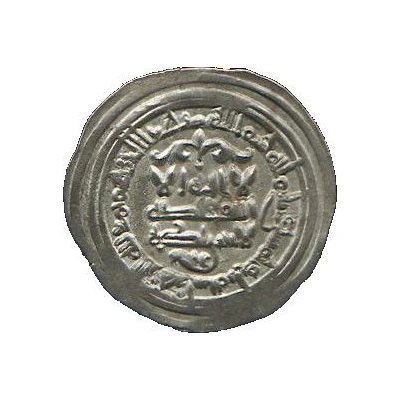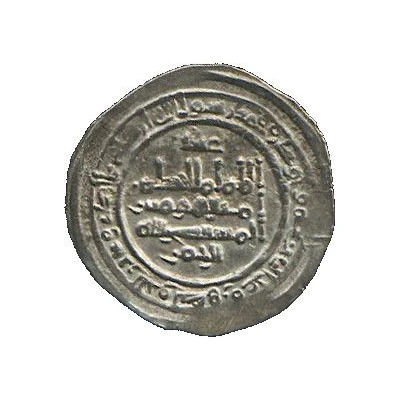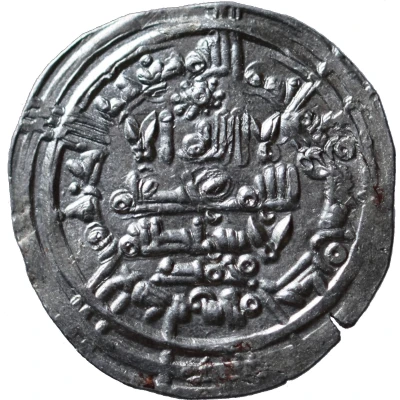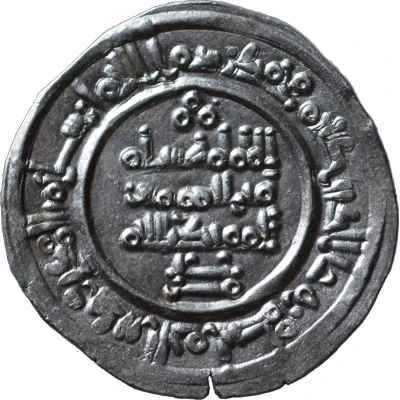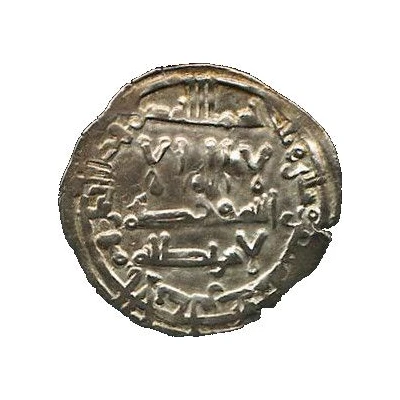
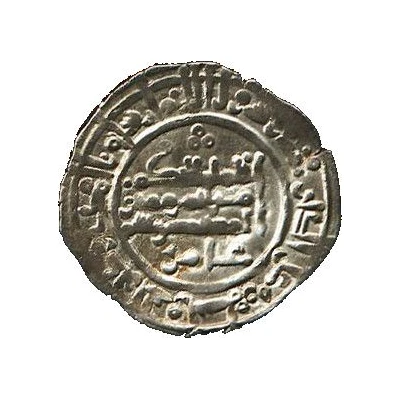

© Tonegawa Collection
Dirham - al-Hakam II al-Andalus
365 (976) year| Silver | 2.70 g | 23 mm |
| Issuer | Umayyad Caliphate of Córdoba (Córdoba, Al-Andalus and Ceuta) |
|---|---|
| Caliph | Al-Hakam II (الحكم المستنصر بألله) (961-976) |
| Type | Standard circulation coin |
| Year | 365 (976) |
| Calendar | Islamic (Hijri) |
| Value | 1 Dirham (1⁄15) |
| Currency | Dinar (929-1031) |
| Composition | Silver |
| Weight | 2.70 g |
| Diameter | 23 mm |
| Shape | Round (irregular) |
| Technique | Hammered |
| Demonetized | Yes |
| Updated | 2024-10-05 |
| Numista | N#334204 |
|---|---|
| Rarity index | 97% |
Reverse
Arabic lettering
Script: Arabic
Lettering:
الامام الحـكم
امـيـر المؤمنين
المستـنـصـر بـالله
عبد
بسم الله ضرب هذا الدرهم بالاندلس سنة ثلثين و ثلث مئة محمد رسول الله ارسله بالهدى و دين الحق ليظهره على الدين كله ولو كره المشركون
Translation:
Imam Al-Hakam
Commander of the Faithful
Al-Mustansir with Allah
Emir
Muhammad is the messenger of God. He sent him with guidance and the true religion to reveal it to all religions even if the polytheists abhor it.
merciful
Comment
The legends vary a bit even in specimen of the same year. To check exactly the variety use the Vives y Escudero catalogue.The name of the monarch is written on the reverse, usually on the left of the second line.
Below is an example of the monarch's name "al-Hakam" on a coin:
The mint and date is written in full, on the marginal legend of the obverse. The script is somewhat calligraphic so not exactly like is presented on the dates in the bottom of this page. Below an example of the mint "al-Andalus" as seen on a coin is presented:
Interesting fact
One interesting fact about the Dirham coin is that it was used as a form of currency during the Umayyad Caliphate of Córdoba, which was a powerful and influential empire that spanned across parts of Europe and North Africa during the 8th to 10th centuries. The coin's design and inscriptions reflect the cultural and religious influences of the time, and it is considered a valuable artifact for historians and collectors today.
